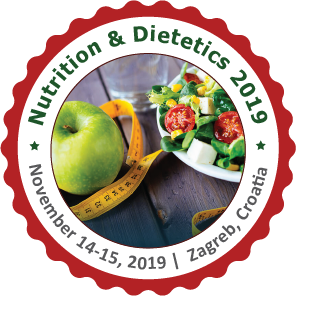Julie Bittar
Indiana University School of Medicine, USA
Title: Acquired Acrodermatitis Enteropathica after Enteral Nutrition in an Elderly Female
Biography
Biography: Julie Bittar
Abstract
A 72-year-old female presented to dermatology clinic with 2-month history of progressive rash on her scalp, lips, oral mucosa, trunk, and extremities. One day prior, she had a feeding tube removed that was in place for 3 months for dysphagia. She reported severe weight loss from poor eating, but was otherwise asymptomatic. She had no recent medication changes.
On exam, her scalp, arms, chest, back, legs, feet and periorificial area had large ill-defined and well demarcated red, scaly thin plaques. She also had erosions on vaginal lips, and erythema in the perianal area and oral mucosa. Erythematous macules with peripheral scale were noted on the feet. Laboratory evaluation showed zinc-deficiency with a serum zinc level of 551 mcg/L (Reference Range 700-1200 mcg/L), while ferritin, 25-OH-vitamin D, and Vitamin B12 were within normal limits.
A diagnosis of acquired Acrodermatitis Enteropathica (AE) was made and treatment was initiated with zinc gluconate. Zinc levels returned to normal limits and skin lesions promptly resolved.
Conclusions:
We present an unusual case of acquired Acrodermatitis Enteropathica in an elderly female on tube feeds. This highlights the importance of adding zinc to tube feed solutions to prevent the development of this condition.
Clinical Significance:
Elderly women are particularly at risk for zinc deficiency, and accordingly, for AE. AE is a disorder of zinc metabolism, resulting from either impaired absorption or deficient intake, and manifests as erythematous, desquamative dermatitis, cheilitis and diarrhea. Zinc deficiency and patients on long-term enteral nutrition have been linked, indicating the need to supplement zinc or add it to tube feeding solutions. Dysphagia is a significant problem in elderly women, with one study showing that 72% of elderly women with no history of dysphagia failed a screening swallow study.1 This case highlights the need to pay close attention to zinc intake in elderly women and the effect of aging on womens’ health.

